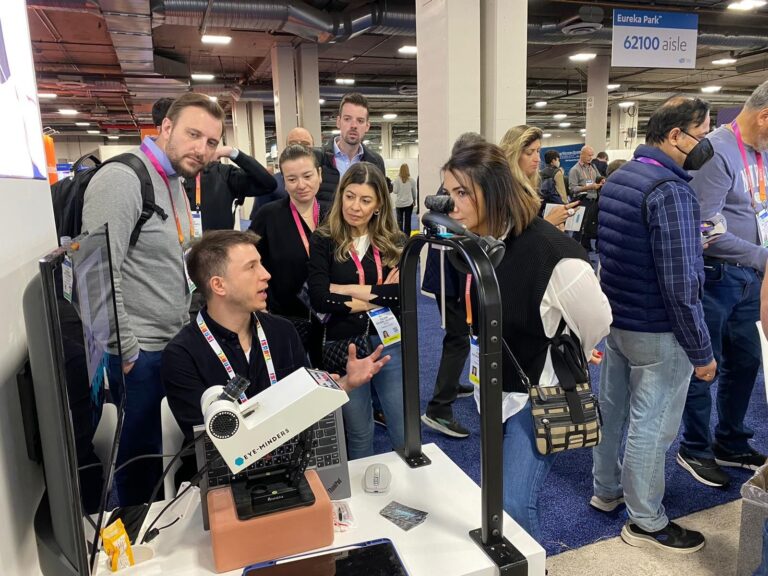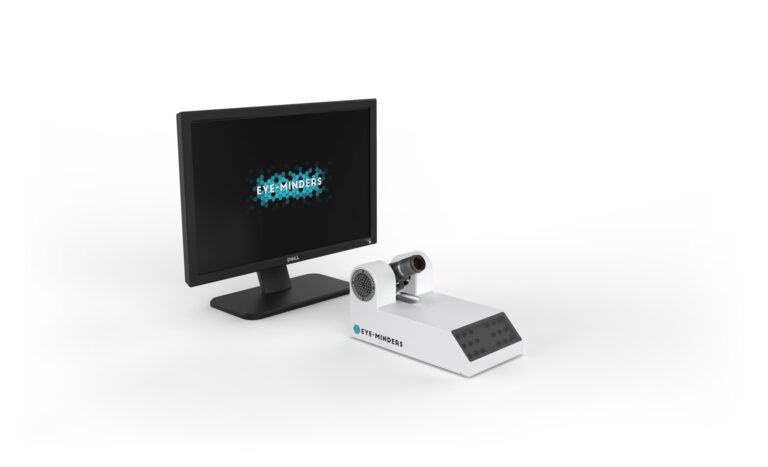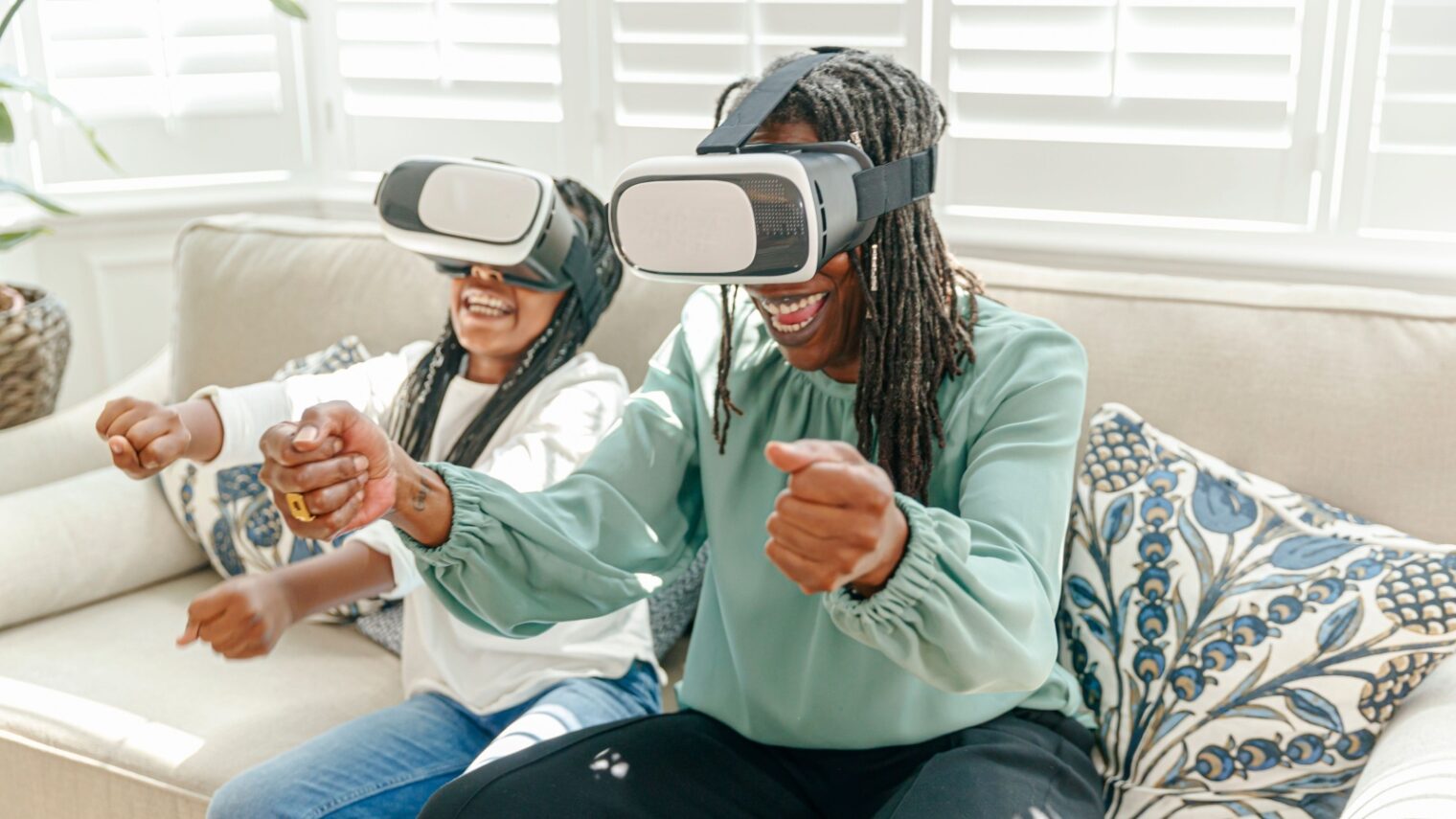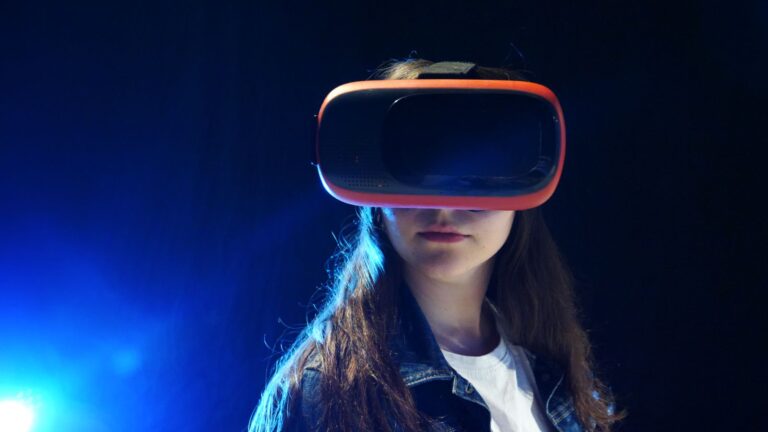As applications and devices enabling more realistic virtual and augmented reality come to market — with 2023 widely forecast to be the year Apple releases its reportedly game-changing goggles — there’s an elephant in the room that could hamper the segment’s growth.
Cybersickness.
Between 38% and 66% of virtual and augmented reality users will experience dizziness, nausea and headache while plugged into their devices. It’s particularly pronounced during games but could also crop up in the midst of a video chat. Stress, online bullying, FOMO and isolation also can contribute to the phenomenon.
Cybersickness is similar to seasickness in that your eyes, ears and other senses are not synchronized. On a boat, for example, your eyes see movement, but the ears don’t get the message. The same queasiness can arise in goggle-enabled “extended reality” – especially when the visual images are out of sync with the audio, or when there’s colorful fast-moving video.
It turns out you can train your brain to overcome cybersickness by gradually exposing yourself to nauseating environments. The key is to have a system in place to monitor how you’re feeling and provide real-time instructions on when to disconnect and when to press on.
That’s what Israeli startup Eye-Minders has developed.
The company’s algorithms — embedded in either a video game app, headset or both — track subtle eye movements to determine how you’re feeling, aiming to head off cybersickness before you even know it’s coming.
The Eye-Minders system will say, “Hey, I can see you’ve done enough today. Why don’t you take a break, and we’ll continue tomorrow?” It can also slow things down – since, in general, watching something calm eases cybersickness.
“The content, the hardware, the software and the person all influence cybersickness,” Daphna Palti-Wasserman, CEO of Eye-Minders, tells ISRAEL21c. “That’s why you have to do the training at your own pace, as it can vary from person to person.”
Lie detection
Eye-Minders debuted its anti-cybersickness product line at the recent CES show in Las Vegas.

However, the company started in 2018 with a focus on monitoring a person’s eyes to see if they’re lying.
“We can set it up in an airport to give a fast, unbiased, non-intrusive test. Polygraphs are unpleasant and usually take a few hours. You have to sit with an examiner who asks you all kinds of personal questions. Plus, it’s very subjective. Maybe the examiner doesn’t like bald guys. Maybe he or she’s in a bad mood,” says Palti-Wasserman.
Eye-Minders launched its first truth-telling product — Aletheia, named after the Greek goddess of truth telling — in 2022 based on propriety algorithms that calculate a comprehensive risk assessment and credibility score based on eye analysis. The scores can be used for insider threat detection and prevention, public safety, safe cities, fintech, insure-tech and more.
Aletheia starts with a standard questionnaire (unlike in a polygraph where the questions are personalized) asking whether, for example, your passport is original or forged.
“We don’t need to find discrepancies in your story as with questioning and investigations by experts,” the CEO says. “We’re just measuring your cognitive and emotional load very accurately in response to a specific question. It’s very precise, narrow and accurate.”
Eye-Minders already has paying clients in the lie detection space. Airports can use the system to determine if someone is a security threat or is trying to smuggle in drugs. Cybersecurity companies can use the tech to stay in compliance. Companies can test candidates before making a final hiring decision.
The wellness focus is just getting off the ground, but it may make the bigger splash, at least in the eyes of consumers.
Seeing the soul
Palti-Wasserman has been fascinated with vision ever since her grandmother told her, “You can see a person’s soul through their eyes.”
She has a PhD in biomedical engineering and a bachelor’s in electrical engineering from the Technion. So, it’s not surprising her background spurred her entrepreneurial side.

“Once I started doing some R&D, I discovered more and more layers of information in the eyes. I decided to pursue that direction and see what we could do,” she says.
Using the cameras in existing AR and VR glasses, which take video images of a user’s face, Eye-Minders’ algorithms will process images to identify the eyes and pupils and extract physiological signals: Are the user’s eyes darting back and forth? How fast is the pupil expanding?
“Not everyone has the same size pupil,” Palti-Wasserman notes. “That why our system works so well; we’re looking at the changes, not the absolute values.”
Eye-Minders will use collected responses to teach the algorithms to improve. “We do a lot of smart calibration for each person because we’re all very different from each other.”
The Eye-Minders system is compact – it’s basically a laptop and a camera on a table. It could also be set up in a public kiosk with a camera and screen.

But as a classic Software-as-a-Service (SaaS) model, first it must gain entry into manufacturers’ closed systems.
Though Apple famously keeps third-party developers away from its proprietary hardware,
Palti-Wasserman is confident that talks with Apple, when they happen, will bear fruit. She hopes to have Eye-Minders’ first products embedded in software and hardware by the end of 2023.
Game developers
“We also want to work with the developers of applications – the games, the ads – and not just the headset makers. There are a lot of stakeholders.”
A game developer could, for example, code the app to slow the action if Eye-Minders detects queasiness coming on.
If it takes off, not only will Eye-Minders’ tech reduce cybersickness, but could also adapt the game play based on the user’s emotions.
Eye-Minders is based in Haifa and employs 14 people. The company has raised $2.4 million according to reports, although Palti-Wasserman wouldn’t confirm that number.
The company is not without competition, but Palti-Wasserman says “most of those companies are working on eye tracking, in the sense of gaze, where you’re looking” and there are no other applications tracking the dynamic changes in the eye.
“We didn’t want to waste time on something that’s already out there,” she says.
For more on Eye-Minders, click here.
















